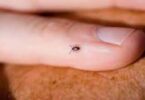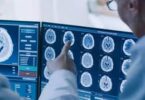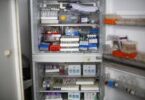BRUSSELS (AFP): It seems that people who lack certain gut bacteria may be more likely to experience depression.
A latest study has found a link between our micro biota and mental health, according to an article published in Nature – an international journal of science.
A new Belgian research reveals a link between specific types of gut bacteria and depression. The findings, published in the journal Nature Microbiology, also provide evidence showing that a wide range of gut bacteria can produce neuroactive compounds.
Within this group, 173 people either had been diagnosed with depression or had done poorly on the quality of life survey. The micro biomes of these people were compared to those of the other participants. Two kinds of microbes – Coprococcus and Dialister – were missing from the micro biomes of the ‘depressed’ but not from the others.
The team then looked at data from a study done in the Netherlands in which the micro biomes of 1,064 Dutch people were assessed. They found the same two microbes missing from those participants diagnosed with depression. While it is not completely known how the two microbes influence depression, Coprococcus seems to have a biochemical pathway resulting in the formation of a dopamine metabolite 3,4-dihydroxyacetic acid.
“This is the first time this kind of work has been done on such a large scale in humans. Most previous work has been done in animal models,” study co-author Jeroen Raes, a systems biologist at The Flanders Institute of Biotechnology, tells Forbes. Because most previous studies on a possible connection between gut microbial metabolism and mental health had been done in animals, the relationship has been controversial.
This doesn’t necessarily mean that lacking these bacteria causes depression. It could be that people who have depression eat differently, for instance, which could change their gut flora. “To determine causality, we would need to procure these bugs and give them to mice with a version of depression,” says Raes.
The challenge now is to find out whether, and how, these microbe-derived molecules can interact with the human central nervous system, and whether that alters a person’s behaviour or risk of disease.






